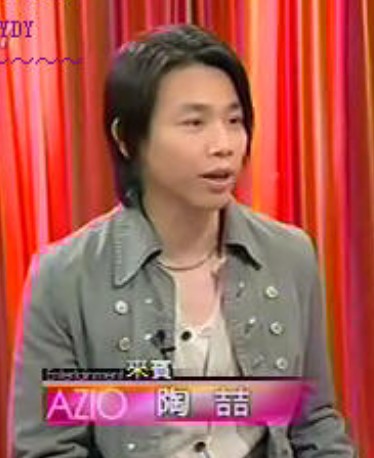
Comparision is always inevitable & DT fans always fret that David is not more popular or his album is not No 1 or his songs don't stay on the chart longer. Being a fan of cos you want your idol to do well, but you must understand David will always has less fans, only cos the ppl who can appreciate his music are usually more intelligent, better educated and more liberal. Obviously there are less of these ppl around.
In one of his interview, David said that the reason he wanted to write songs that reflect the society today and make ppl think is because he felt songs are not only for entertainment. Yet how many times I have read reviews of The Great Leap that pointed out that he is being preachy again. What is wrong with putting a msg in a song so that ppl can stop and think and maybe learn something? Sure you can give him less stars cos you feel his album is not so good musically, but please dun mock someone's good intentions. There r so few of these kinda celebrities around, surely we should cherish them.
So that's why David will always has less fans cos ppl dun want to think outside the square. They always go for the inevitable. Singer/composer released album with social msgs but nothing 'fresh' or 'exciting', put in bin, go for singer with carefully cultivated image for fun and pleasure. So plse dun stress yourself about whether or not The Great Leap is No 1. The important thing is listen to the album & learn what David has to say.
Here's another great article by a Malaysian writer where David actually lamented the fact that his teenaged fans do not understand his songs, but David, I think you are wrong, I think most of them understand them & that's why they are your fans.
Voice of humanity
David Tao's songs are not just pleasant to the ear, they convey stories, messages and his observations on life, writes NG CHENG YEE who met up with him in Hong Kong recently.
ASIAN king of R&B David Tao is a rebel with a cause and he is intent on making the world a better place through his music.
Always going against the norm, the singer-songwriter wants to project himself as an artiste who is concerned with problems faced by society.
His latest album The Great Leap 2005, which signalled the birth of his new feelings, ideas and struggle as he enters 'mid-life' (he emphasised that it was a mid-life without crisis), also comes with new sounds, stories and more observations on life.
"I believe we can talk more about things affecting our society in our songs instead of just talking about love," he says, alternating between Mandarin and English at a press conference in Hong Kong recently.
For example, the song Ghost, in his latest album, which refers to human beings as ghosts, reflects the worst in people.
"As we grow older, we tend to compromise on certain things and slowly we create a monster within ourselves that is scarier than the real ghost.
"So it is a song that reminds us to differentiate between what is fake and what is genuine.
"At times, we say that ghosts are very scary. But when we look at the damage people bring to the world through wars and terrorism, we find that we are actually scarier than ghosts."
The song caused some controversy when it was released in China and was even banned from the airwaves. "I felt very upset when it was banned as the song was not about something spiritual, but a negative symbol that conveyed a positive message," he says.
Tao explains that the song also conveys his anger and frustration towards the phenomenon that he sees in society, where the rich and powerful are not fighting for people's interests.
Noting this in his album, he says: "Many 'great leaps forward' in history, arguably, have been paradoxical in their outcome and often caused more damage and insult to the people and environment they were intended to benefit."
His song The Art of War, which sees his collaboration with the acclaimed 12 Girls Band, is about the weak ones being unjustly treated.
He notes, sadly, that many people, especially teenagers, do not understand the meaning of his songs.
"And this is like me listening to Sting's The Dream of the Blue Turtles when I was 15 or 16 but when I replayed the album during my university years, I realised there is a certain message in the album that the singer wants to convey," he says.
He says a good album should not be measured by how long it takes to be produced. It should be by how long the singer takes to experience life before including it in the album.
"I think every singer should give themselves some space in order to produce good music. At times, they must also be brave to tell the record company: Sorry, please don't push me any further. I can't do it. Otherwise, we will compromise very easily and our quality will deteriorate."
On whether it is too naive to believe that there will be peace in the world, Tao disagrees and says that most religions look at the world as a world of struggle but that does not mean that people should stop showing their love to others.
"It is a day-to-day activity. We do not have to wait for a natural disaster, a terrorist activity or a war to happen before we show our love," says Tao who has been promoting world peace.
Born in 1969, Tao left Taiwan for the United States after completing junior high in Taiwan. He studied psychology at University of California, Los Angeles (UCLA), with a minor in films.
While working in a record store, he met a Taiwanese producer who hired him to compose songs.
And that was briefly how he started out in the music industry, culminating in the release of his debut, Taoism, in 1997 under Shock Records in Taiwan.
The album broke sales records and Tao quickly became a phenomenon. The media wasted no time in labelling him Taiwan's R&B King. Subsequent artistes who attempted R&B have been compared to him, especially Jay Chou.
He established himself as a renowned producer for both Taiwan and Hong Kong artistes such as the now defunct pop boyband LA BOYZ, songstress Sarah Chen Shu Hua and Eric Sun Yao Wei before taking the plunge into the limelight. He also writes songs for A-Mei, Sandy Lam and Eason Chan.
He had four albums to his name before releasing The Great Leap 2005. They are Tao Zhe (1997), I’m OK (1999), Black Tangerine (2002) and Ultrasound (1997-2003).
"As a musician, I need time to experience life and digest what I’ve learned before conveying it through my songs. I do not just sit there for three months and play a musical instrument until I get an idea for a song."
He also reveals that six of the songs on his new album were produced in one evening.
"But I also struggled for three months before these songs were produced that evening. Somehow, they just came.
"It is a much cleaner and simpler album. When you grow older, you do not need to have too many accessories to bring out your character.
"When you reach 35 like me, you will have different views on life, love, your spouse, parents and this will definitely be reflected in your music," says Tao who only used four musical instruments in each song.

No comments:
Post a Comment